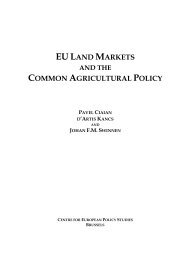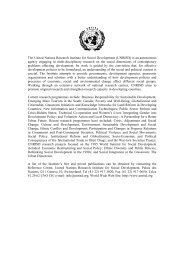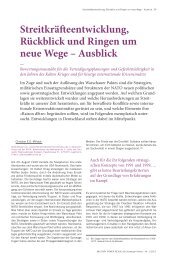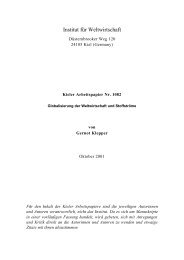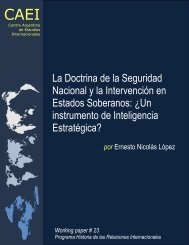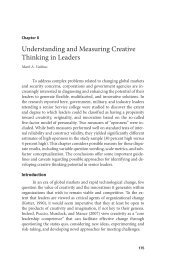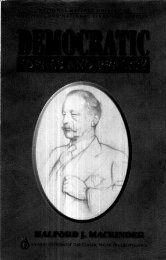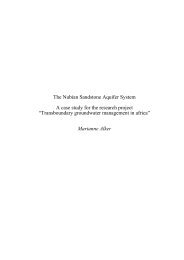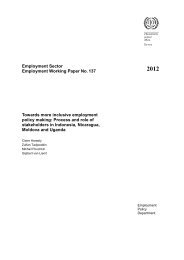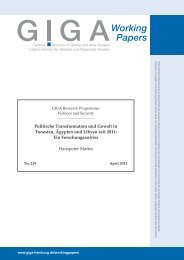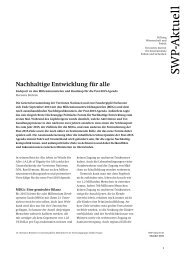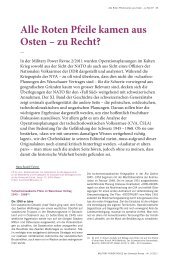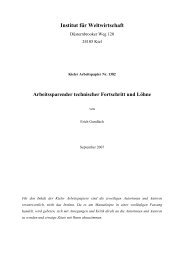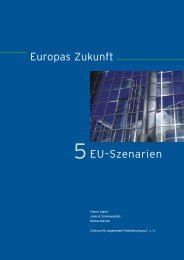Global Jihad: temi, piste di diffusione e il fenomeno del reducismo ...
Global Jihad: temi, piste di diffusione e il fenomeno del reducismo ...
Global Jihad: temi, piste di diffusione e il fenomeno del reducismo ...
You also want an ePaper? Increase the reach of your titles
YUMPU automatically turns print PDFs into web optimized ePapers that Google loves.
Abdallah Aal al-Shaikh’s fatwa (Islamic ruling) against it 39 . Since it was issued by the<br />
chief Sau<strong>di</strong> religious authority, this stance was likely intended to forestall possible<br />
suicide operations in the Kingdom, but it had some larger, unintended effects as<br />
well. The principal criticism of his fatwa came in the form of massive Arab and<br />
Islamic support for suicide operations by Palestinians against Israel, and for many<br />
people, this support quickly expanded to include any suicide operation in the name<br />
of Islam.<br />
This same phenomenon was apparent in the contra<strong>di</strong>ctory Islamic rulings that were<br />
issued following the September 11 attacks in the United States 40 . The subsequent<br />
American attack on Afghanistan and Iraq, and the U.S. efforts to create a wide<br />
coalition of support in the Arab and Muslim worlds generated sim<strong>il</strong>ar debates, much<br />
like the Gulf War had in 1991. These debates in turn fostered a measure of support<br />
and legitimacy within the Islamic establishments for Islamist terrorist groups and<br />
their means of struggle. Secular regimes often demand that their religious<br />
establishment oppose Islamist terrorism, but many clerics tend to legitimize violence<br />
against Israel and the Western world. In some cases, these <strong>di</strong>sputes reflect internal<br />
conflicts between the religious and political establishments, such as in Sau<strong>di</strong> Arabia,<br />
Egypt, and Pakistan. In such cases the Islamic establishments appeals to the notion of<br />
public and popular hatred of the West or Western culture, calling for revenge against<br />
Westerners as those who are responsible for social problems in the Muslim world.<br />
Another important element in this trend of doctrinal consolidation was the recent<br />
adoption of the Palestinian cause by many Islamist groups that had fa<strong>il</strong>ed to embrace<br />
it in the past. Furthermore, many Palestinian Islamist scholars have been intensely<br />
involved in the development of the new ideology, inclu<strong>di</strong>ng: Dr. Abdallah Azzam in<br />
Afghanistan, the spiritual father of the idea of al-Qa’ida; Sheikh Issam al-Burqawi<br />
39 On the Sau<strong>di</strong> Fatwa and the reaction toward it, see Reuven Paz, The Sau<strong>di</strong> Fatwa against Suicide Terrorism,<br />
PEACEWATCH No. 323, May 2 nd 2001, The Washington Institute for Near East Policy.<br />
40 For example, see the religious arguments of Anti-Western rhetoric of one Sau<strong>di</strong> Sheikh in Fatwa on Recent<br />
Events by Shaykh Humud al-'Uqla al-Shuaibi. Both the fatwa and accompanying commentary are also ava<strong>il</strong>able online:<br />
http://www.sunnahonline.com/<strong>il</strong>m/contemporary/0017.htm<br />
59



